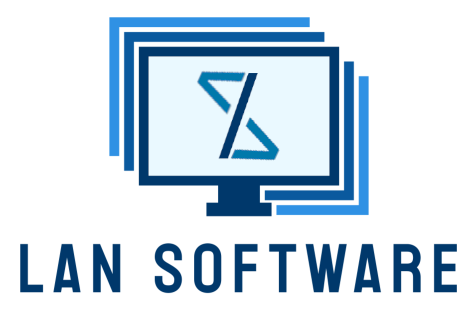Migrating to Teams from Avaya: Hidden Challenges and Critical Considerations
Migrating to Microsoft Teams from Avaya may initially seem straightforward. However, as more companies embark on this journey, they often encounter unexpected challenges that can significantly impact their operations and budget. With decades of PBX configurations, the migration path can be fraught with delays and complications. Many organizations find themselves reaching out to additional vendors to complete the project or rescue it from what seems like an indefinite pause, leading to unexpected costs and frustrations.
At LAN Software, we deeply understand these challenges. We're committed to helping you navigate this complex transition with care and expertise. Our state-of-the-art algorithms determine the current structure of your Avaya system, identifying and documenting potential issues you may face during the migration process. We believe in empowering you with knowledge to make informed decisions and avoid costly surprises.
Critical Considerations Often Overlooked
Many organizations underestimate the complexity of migrating from Avaya to Teams. Here are some crucial aspects that deserve careful attention:
- 911 Compliance: Ensuring emergency services can accurately locate callers is not just a feature - it's a legal requirement. Teams handles 911 calls differently from traditional systems, and adapting to these changes requires careful planning and configuration.
- Physical Devices: While Teams is primarily software-based, many businesses rely on physical phones and devices. Not all of these are compatible with Teams, potentially necessitating hardware upgrades or creative workarounds.
- Credit Card Machines: If your payment processing is integrated with your phone system, migrating to Teams could disrupt this critical business function. Special consideration is needed to ensure uninterrupted payment processing.
- Fax Machines: Despite the digital age, many industries still rely on faxing. Teams doesn't natively support traditional fax machines, requiring additional solutions or services to maintain this functionality.
- Legacy Hard Phones: Older phone models may not be compatible with Teams, potentially requiring a significant investment in new hardware. We can help you assess which devices can be retained and which need replacement.
- Call Center Operations: If you run a call center, the migration to Teams requires careful planning. Features like call queuing, advanced routing, and detailed reporting may need additional solutions or configurations in Teams.
Devices That Can't Be Directly Migrated
It's important to recognize that some devices simply can't make the leap to Teams without intervention. These may include:
- Analog devices like traditional fax machines, door entry systems, and some conference phones
- Older IP phones that aren't compatible with Teams' protocols
- Specialized equipment like paging systems or overhead announcements
- Some types of conference room systems and video endpoints
For these devices, we can help you explore options such as gateways, replacement, or alternative solutions to ensure your business processes remain uninterrupted.
The Importance of Call Center Audits
For businesses with call centers, a thorough audit is crucial before migration. This involves:
- Mapping current call flows and ensuring they can be replicated in Teams
- Identifying any custom integrations or scripts that may need to be rebuilt
- Ensuring that reporting and analytics capabilities meet your needs
- Planning for agent training to minimize disruption during the transition
We understand that your call center is often the frontline of your business, and we're committed to ensuring it remains efficient and effective throughout the migration process.
A Caring Approach to Your Migration Journey
At LAN Software, we don't just see this as a technical challenge - we understand that your communication system is the lifeline of your business. That's why we approach each migration with empathy and dedication. We're here to guide you through each step, ensuring that your unique needs are met and that your team feels supported throughout the process.
Here are some steps and tips to ensure a smoother transition:
- Comprehensive Assessment: We'll thoroughly evaluate your current Avaya setup, identifying not just the obvious features, but also the hidden dependencies and workflows that keep your business running smoothly.
- Detailed Planning: Together, we'll develop a migration plan that goes beyond timelines and milestones. We'll anticipate potential challenges and have contingencies in place to minimize disruptions to your operations.
- Tailored Training: We ensure your team is well-prepared for the transition, with training programs designed to address the specific ways your organization will use Teams.
- Thoughtful Integration: We'll help you leverage the full potential of Teams, integrating it seamlessly with your other tools and workflows to enhance productivity and collaboration.
- Ongoing Support: Our commitment doesn't end with the migration. We'll be there to provide support and guidance as your team adapts to the new system, ensuring you get the most out of your investment.
While the transition to Microsoft Teams can significantly enhance your communication and collaboration capabilities, it's essential to approach the migration with a well-thought-out plan and the right support. At LAN Software, we're dedicated to making your migration journey as smooth and worry-free as possible. We understand the complexities involved and are here to help you navigate them with confidence.
Remember, a successful migration isn't just about technology - it's about ensuring your team can communicate effectively and your business can operate efficiently. Let us help you make this transition a transformative experience for your organization.
